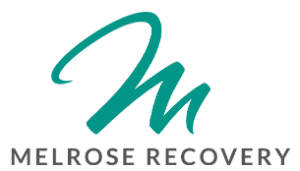Orthorexia Nervosa
We Can Regret Less And Be Grateful For What is Good in Life
Orthorexia Nervosa (ON) – Welcome to Melrose Recovery, your pathway to transformation and healing. Located in the vibrant heart of Los Angeles, California just moments away from iconic Hollywood and the picturesque beaches of Santa Monica and Venice, we are dedicated to changing lives. Since 2015, our comprehensive Orthorexia treatment approach encompasses, residential care, and aftercare services, all tailored to meet each individual’s unique needs on their recovery journey.
Led by a compassionate team of addiction professionals and counselors, we offer a range of therapy programs designed to support and guide individuals suffering anorexia orthorexia toward lasting health. At Melrose Recovery, we believe in the power of personalized care and diverse treatment options to pave the way for a brighter future.

Orthorexia Nervosa: When Healthy Eating Becomes Harmful
What Is Orthorexia Nervosa – Define Orthorexia?
Orthorexia Nervosa is a lesser-known but serious eating disorder marked by an obsessive focus on eating only foods perceived as healthy or “pure.” Unlike other eating disorders such as anorexia or bulimia—which focus primarily on body image and weight—orthorexia is centered on the quality of food, not quantity.
People with orthorexia often experience intense fear, guilt, or anxiety when confronted with foods they consider unhealthy. Over time, this obsession can interfere with daily functioning, relationships, and physical health.
How Orthorexia Differs from Healthy Eating – Orthorexia Nervosa
Eating healthy is generally positive—but when it becomes rigid, fear-driven, and disruptive to daily life, it may be orthorexia. Individuals with this condition often:
-
Rely on strict self-defined food rules
-
Feel distressed or panicked when breaking these rules
-
Avoid social situations involving food
-
Remove entire food groups for non-medical reasons
-
Spend excessive time preparing or researching “clean” foods
What sets orthorexia apart is not the desire to eat well—but the obsession, anxiety, and negative consequences surrounding that desire.
Causes and Risk Factors – Orthorexia Nervosa
The exact cause of orthorexia is unclear, but multiple factors may contribute, including:
-
A family history of eating disorders
-
Perfectionism or need for control
-
Childhood feeding difficulties
-
Body image concerns
-
Co-occurring mental health or substance use disorders
-
Cultural pressures around wellness, dieting, or “clean eating”
These risk factors may overlap with those of other eating disorders, but orthorexia is specifically tied to the perceived healthiness of food.
Why Orthorexia Is Dangerous – Orthorexia Nervosa
Orthorexia can lead to:
-
Malnutrition and weight loss due to food restrictions
-
Social isolation from avoiding meals with others
-
Anxiety, depression, or panic attacks around food choices
-
Disordered use of substances such as laxatives or diet pills
-
Compulsive behaviors, such as fasting to “undo” perceived dietary mistakes
Though not officially recognized in the DSM-5 (Diagnostic and Statistical Manual of Mental Disorders), orthorexia is increasingly acknowledged by health professionals due to its real and serious effects.
Signs and Symptoms of Orthorexia – Orthorexia Nervosa
Common signs include:
-
Obsessive focus on “clean,” “pure,” or “healthy” foods
-
Elimination of food groups without medical justification (e.g., sugar, dairy, gluten)
-
Refusing to eat food prepared by others
-
Intense anxiety, guilt, or shame after eating “unhealthy” foods
-
Constant checking of nutritional labels
-
Judging others’ food choices harshly
-
Physical symptoms like malnutrition, fatigue, or weight loss
-
Using restrictive or “corrective” behaviors (e.g., fasting) to compensate after eating forbidden foods
These symptoms often reflect a rigid, perfectionistic mindset and a deep emotional tie to dietary control.
Diagnosis Challenges – Orthorexia Nervosa
Orthorexia is not currently an official diagnosis in most diagnostic systems, which means:
-
There are no standardized criteria for diagnosis
-
It may be misdiagnosed as another eating or anxiety disorder
-
Diagnosis often relies on clinical judgment and observation of patterns
Nonetheless, many healthcare providers recognize orthorexia and treat it similarly to other eating disorders.
Treatment for Orthorexia Nervosa
Although there’s no formal diagnosis, treatment approaches from other eating disorders are often effective:
1. Cognitive Behavioral Therapy (CBT)
Helps individuals identify and challenge harmful thought patterns and behaviors tied to food and control.
2. Acceptance and Commitment Therapy (ACT)
Teaches individuals how to tolerate distressing thoughts without acting on them compulsively.
3. Nutritional Counseling
Involves dietitians who guide patients toward balanced eating and address nutritional deficiencies.
4. Exposure Therapy
Gradually introduces feared foods to reduce anxiety and build flexibility in eating habits.
5. Integrated Care Team
Treatment often includes a therapist, physician, and registered dietitian to address both the mental and physical effects of orthorexia.
These treatments may also be adapted for individuals with co-occurring substance use disorders, which are common in those with rigid food-related behaviors.
When to Seek Help
If you or a loved one struggles with obsessive food rules, experiences distress over eating, or avoids social eating situations, it may be time to seek support. Left untreated, orthorexia can lead to serious emotional and physical complications.
Melrose Recovery offers comprehensive care for individuals battling disordered eating and co-occurring conditions. Reach out today to begin the journey toward healing and balance.
Frequently Asked Questions About Orthorexia Nervosa
General Understanding of Orthorexia Nervosa
What is Orthorexia Nervosa?
Orthorexia Nervosa is an eating disorder characterized by an obsessive focus on eating foods that one considers healthy, often to the detriment of physical health, mental well-being, and social functioning.
Is Orthorexia officially recognized as a mental disorder?
No, Orthorexia is not officially recognized as a distinct eating disorder in the DSM-5, but it’s gaining attention and is considered a serious condition by many health professionals.
Who coined the term Orthorexia?
Dr. Steven Bratman introduced the term in 1997 to describe a pathological fixation on healthy eating.
How is Orthorexia different from healthy eating?
While healthy eating is balanced and flexible, Orthorexia involves rigid rules, anxiety, guilt, and often a decline in overall health due to food restrictions.
Can Orthorexia lead to malnutrition?
Yes, due to the elimination of entire food groups, individuals may suffer from nutritional deficiencies and related health issues.
Symptoms and Diagnosis – Orthorexia Nervosa
What are common signs of Orthorexia?
Obsessive concern over food quality, rigid eating rules, guilt after deviating from the diet, and avoidance of social events involving food.
How is Orthorexia diagnosed?
There’s no formal diagnostic criteria, but tools like the ORTO-15 questionnaire and clinical assessments are used to identify symptoms.
Can Orthorexia co-occur with other mental health conditions?
Yes, it often coexists with anxiety, OCD, depression, or other eating disorders like anorexia or bulimia.
Is body image a concern in Orthorexia?
Less so than in anorexia or bulimia; the focus is more on food purity and health than on weight loss or body image.
What psychological traits are common in people with Orthorexia?
Perfectionism, need for control, high anxiety, and obsessive-compulsive traits.
Causes and Risk Factors – Orthorexia Nervosa
What causes Orthorexia?
It’s believed to result from a combination of psychological, social, and biological factors, including media influence and personal traits like perfectionism.
Does social media contribute to Orthorexia?
Yes, exposure to health influencers and diet trends online can reinforce restrictive and extreme views about food.
Are certain populations more at risk?
Yes, athletes, nutritionists, fitness enthusiasts, and individuals in wellness communities may be more vulnerable.
Can childhood experiences affect the risk of Orthorexia?
Yes, early exposure to rigid food rules or parental anxiety about food can contribute to its development.
Is Orthorexia more common in men or women?
It affects both, but women may be more frequently diagnosed due to higher societal pressure around diet and health.
Consequences and Impact – Orthorexia Nervosa
What are the physical effects of Orthorexia?
Malnutrition, weight loss, hormonal imbalances, fatigue, and weakened immunity.
How does Orthorexia affect mental health?
It can lead to anxiety, social isolation, depression, and obsessive thoughts related to food.
Can Orthorexia damage relationships?
Yes, it often results in social withdrawal and conflict with friends or family due to rigid food rules.
Can Orthorexia impact work or school?
Yes, the obsession with food and health can impair concentration, productivity, and participation in daily activities.
Is Orthorexia a progressive disorder?
Yes, if left untreated, it can become more severe and debilitating over time.
Treatment and Recovery – Orthorexia Nervosa
How is Orthorexia treated?
Treatment often includes psychotherapy (especially CBT), nutritional counseling, and sometimes medication for co-occurring conditions.
Can people recover from Orthorexia?
Yes, with appropriate treatment and support, individuals can learn to eat more flexibly and restore balance.
What role does therapy play in recovery?
Therapy helps challenge rigid beliefs, reduce anxiety, and develop a healthier relationship with food and body.
Are dietitians involved in Orthorexia treatment?
Yes, registered dietitians can help reintroduce balanced eating habits and correct nutritional deficiencies.
What is the outlook for someone with Orthorexia?
With early intervention and a strong support system, most people can recover and lead a healthy, balanced life.
Don’t Wait to Look for a Drug Addiction Treatment Program
Get In Touch
info@melroserecovery.com
501 North Mariposa Ave, Los Angeles, CA 90004








